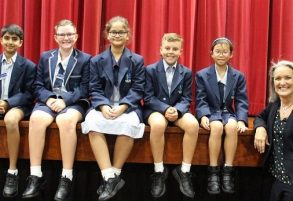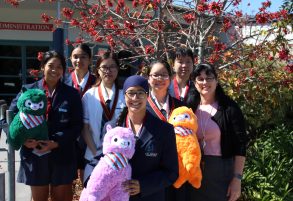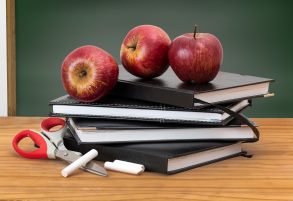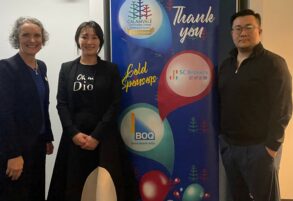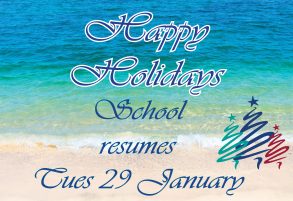In this issue
Principal News
Important information to parents about vaping
Positive Behaviour for Learning (PBL)
The IB Middle Years Programme at CCC
Building a strong culture of parent engagement
Student Work Selected for District Exhibition
QTIC Awards
Science Week Amazingness
Junior School Book Week
Reading Buddies
USQ Head Start Program
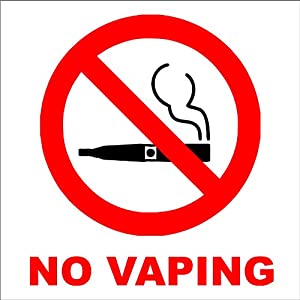
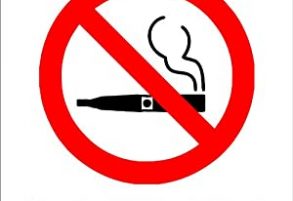
Important information to parents about vaping
“Vaping” has become an increasing issue of concern in Australian schools and the broader community, with the Alcohol and Drug Foundation indicating that vaping by young people has increased in recent years. It is important that all parents are informed about this issue and are provided with the facts so …
Important information to parents about vaping

“Vaping” has become an increasing issue of concern in Australian schools and the broader community, with the Alcohol and Drug Foundation indicating that vaping by young people has increased in recent years. It is important that all parents are informed about this issue and are provided with the facts so they can have conversations with their children about the dangers of vaping. We have identified that some students may perceive that “vapes” and “vaping” are harmless, however, this is not the case.
What is a “vape”? A “vape” is an electronic cigarette. An electronic cigarette or “e-cigarette” is an electronic device that simulates tobacco smoking. It consists of an atomizer, a power source such as a battery, and a container such as a cartridge or tank. Some e-cigarettes can be charged in a laptop’s USB port. E-cigarettes heat a liquid, known as an “e-liquid” containing nicotine (extracted from tobacco), flavourings and/or other chemicals to create an aerosol or “vapour” that the user inhales. As such, using an e-cigarette is often called “vaping”.
What do “vapes” look and smell like? Vapes come in many different shapes and sizes. Please see attached for some images of what they may look like. Some vapes appear to be marketed specifically at young people with animated illustrations on the cover. Others can look like highlighters, pens or confectionary. The e-liquid can come in many different flavours. Some examples are: bubble-gum, watermelon and many other fruit flavours, vanilla and chocolate, therefore the smell produced by the vape can be reminiscent of these. Some of the products are called “puff bars”.
What are the health ramifications? E-cigarettes are linked to severe lung illness – you can read more about this in a statement from the Chief Medical Officer and State and Territory Chief Health Officers: https://www.health.gov.au/news/e-cigarettes-linked-to-severe-lung-illness
It is important to note that e-liquids, even when labelled ‘nicotine free’, can contain harmful and widely varying substances such as nicotine, heavy metals, volatile organic compounds and cancer-causing chemicals. These chemicals can affect adolescent brain development. You can read more about the health implications for young people here: https://www.rch.org.au/kidsinfo/fact_sheets/E-cigarettes_and_teens/
What are the legal ramifications? Under the Tobacco and Other Smoking Products Act 1998 (Tobacco Act), electronic cigarettes are smoking products and subject to the laws in place for tobacco cigarettes.
These devices cannot be:
- sold to children under 18 years of age
- used in existing no-smoking indoor and outdoor places
- advertised, promoted or displayed at retail outlets
- provided for sale in a vending machine.
Electronic cigarettes that contain liquid nicotine are regulated under Queensland’s Health (Drugs and Poisons) Regulation 1996 (HDPR), on the basis that liquid nicotine is classified as a ‘Dangerous Poison’ under Schedule 7 of the federal ‘Poisons Standard’, which is published on the Therapeutic Goods Administration (‘TGA’) website. Accordingly, in Queensland, liquid nicotine is:
- A ‘S7 poison’ and a ‘regulated poison’ under the HDPR; It is an offence for a person to manufacture, obtain, possess, prescribe, dispense, sell, advertise, use or destroy nicotine, unless the person is specifically authorised or holds an approval under the HDPR. A significant penalty applies.
Electronic cigarettes containing liquid nicotine can be safely disposed of at a community pharmacy or a local public health unit.
To report illegal sale or possession of electronic cigarettes containing liquid nicotine, call 13 QGOV (13 74 68).
Please refer to the Queensland Government Health site for more information: https://www.health.qld.gov.au/public-health/topics/atod/tobacco-laws/electronic-cigarettes
Calamvale Community College takes this health concern very seriously and we are addressing this at the College level by working with our students to educate them about the dangers of inhaling dangerous chemicals. We respond to any reports of students possessing vapes or students being involved in vaping in accordance with our College’s Responsible Behaviour Plan for Students (available on the website), while also providing education and support. Vapes are a prohibited item at the College, in the same category as cigarettes and other smoking paraphernalia and smoking products. Students can seek support from the College’s Guidance Officers, or make reports to their Year Level Deputy Principal if they have concerns.
We encourage you to have a conversation with your child about e-cigarettes and vaping. Please see attached for some guidelines about how you might approach this conversation. If you have any concerns about this issue and you would like to follow up further, please be in contact with your child’s Year Level Deputy Principal or Guidance Officer.
Thank you for working with us to educate our young people so they can make good decisions for themselves that promote wellbeing, health and happiness.
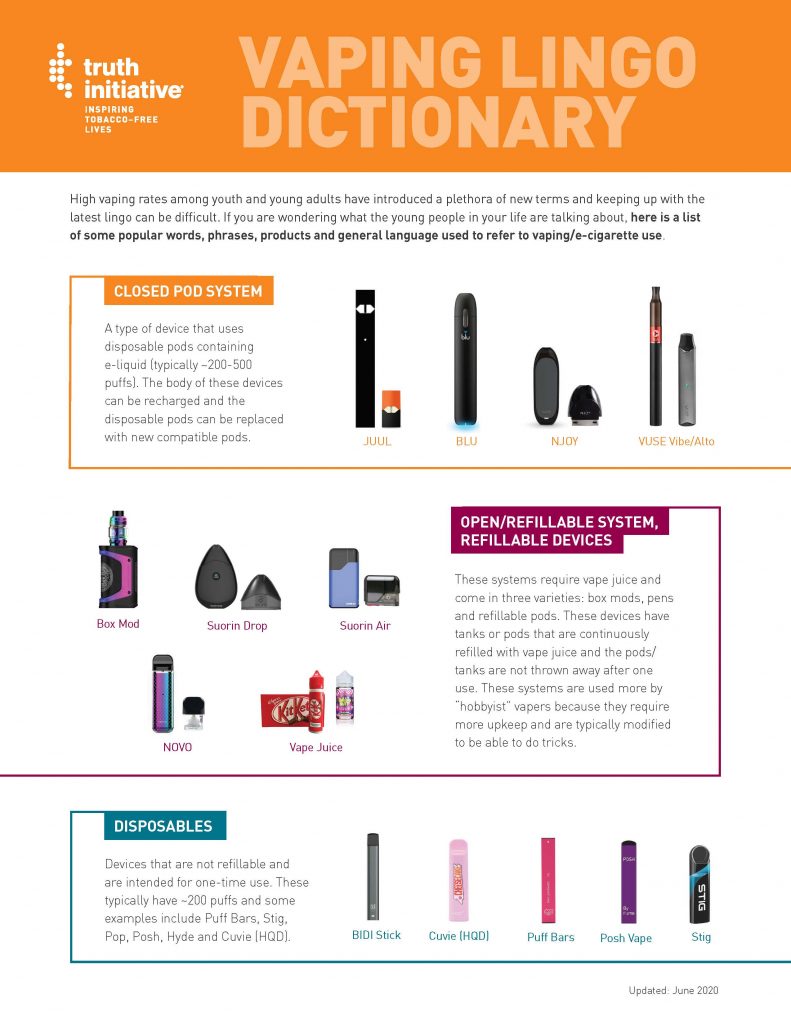
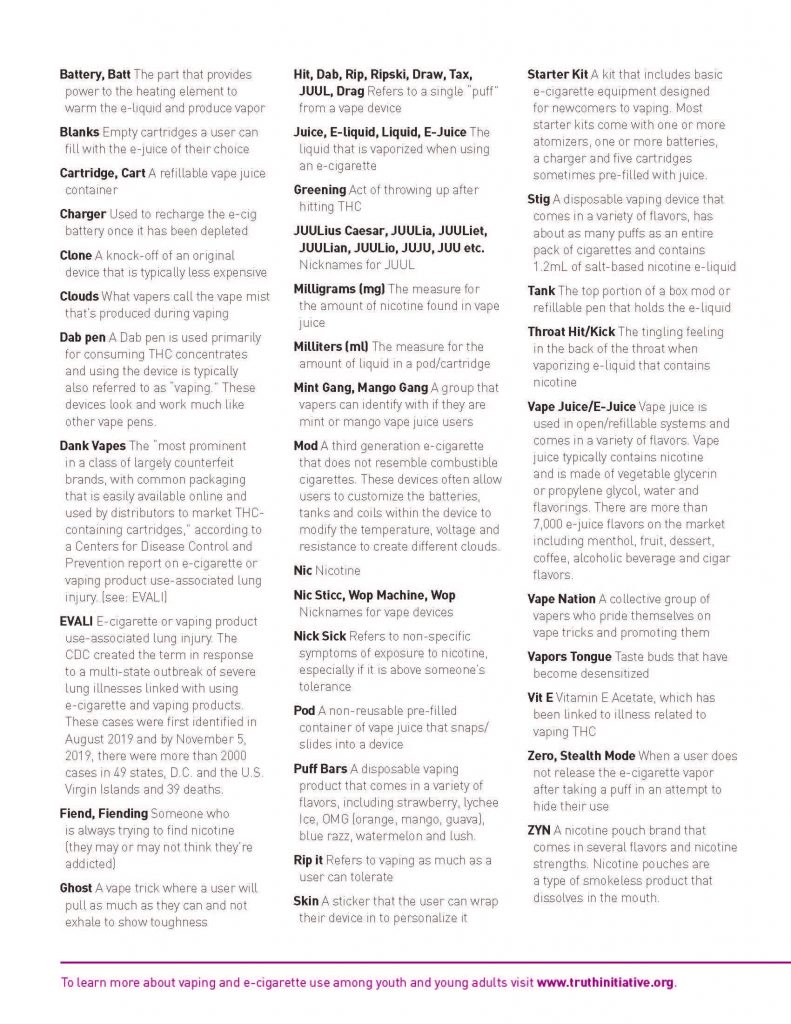
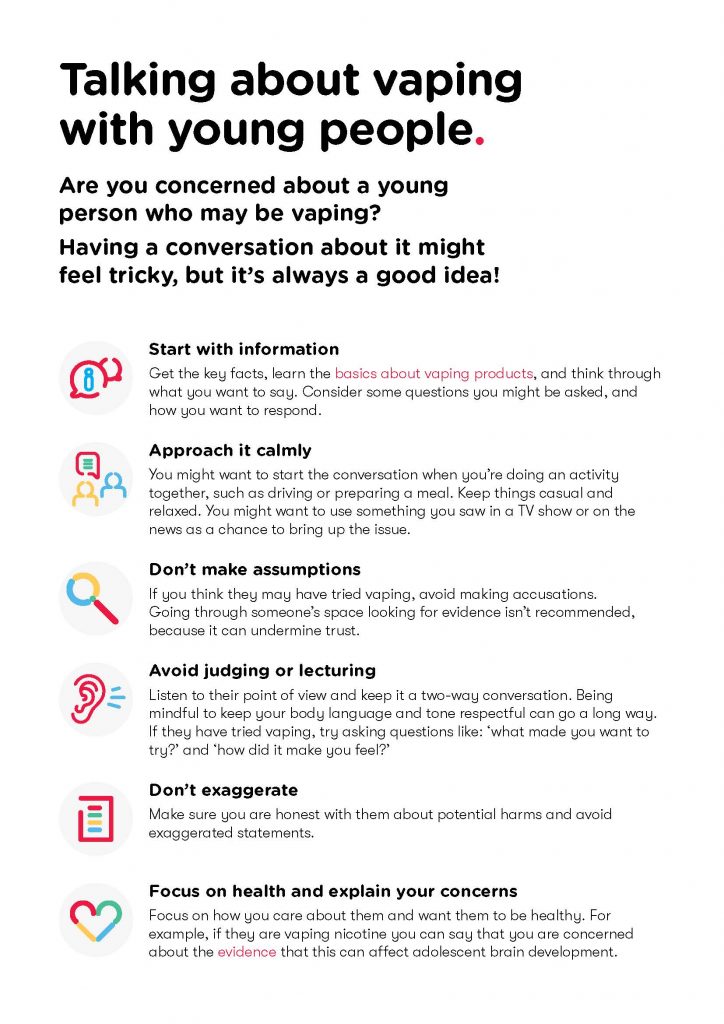
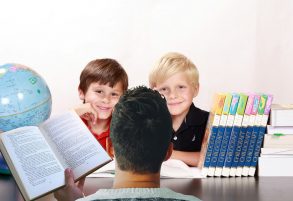
Building a strong culture of parent engagement
It’s something parents hear all the time, but it bears repeating. One of the keys to parents and teachers working together is to have good …
Building a strong culture of parent engagement
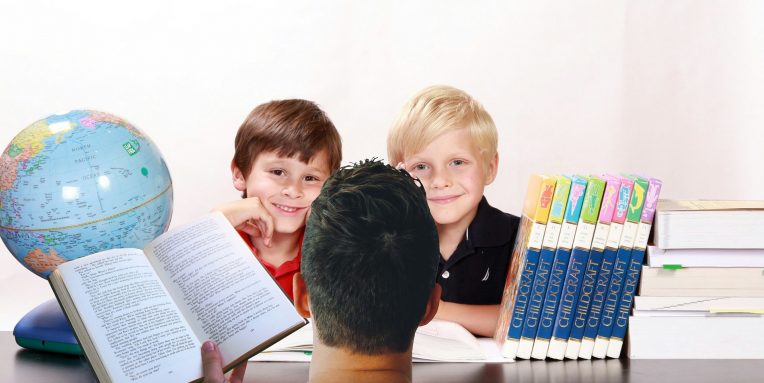
It’s something parents hear all the time, but it bears repeating. One of the keys to parents and teachers working together is to have good communication. Parents are vital partners in education. They influence their children’s attitudes about learning, and support learning at home. They are a vital link between home and school. And when they become involved in the life of the school, they make our schools better places to learn, grow and thrive. Educators and parents generally agree that positive, supportive and open relationships between home and school, parent and teacher are desirable. Additionally, research has shown that parent engagement and successful parent-teacher partnerships result in improved educational outcomes for students. Teachers and parents provide a vital support system to help students flourish. Both groups are important. When parents and teachers communicate and work together effectively, it can significantly impact each student’s long-term success.
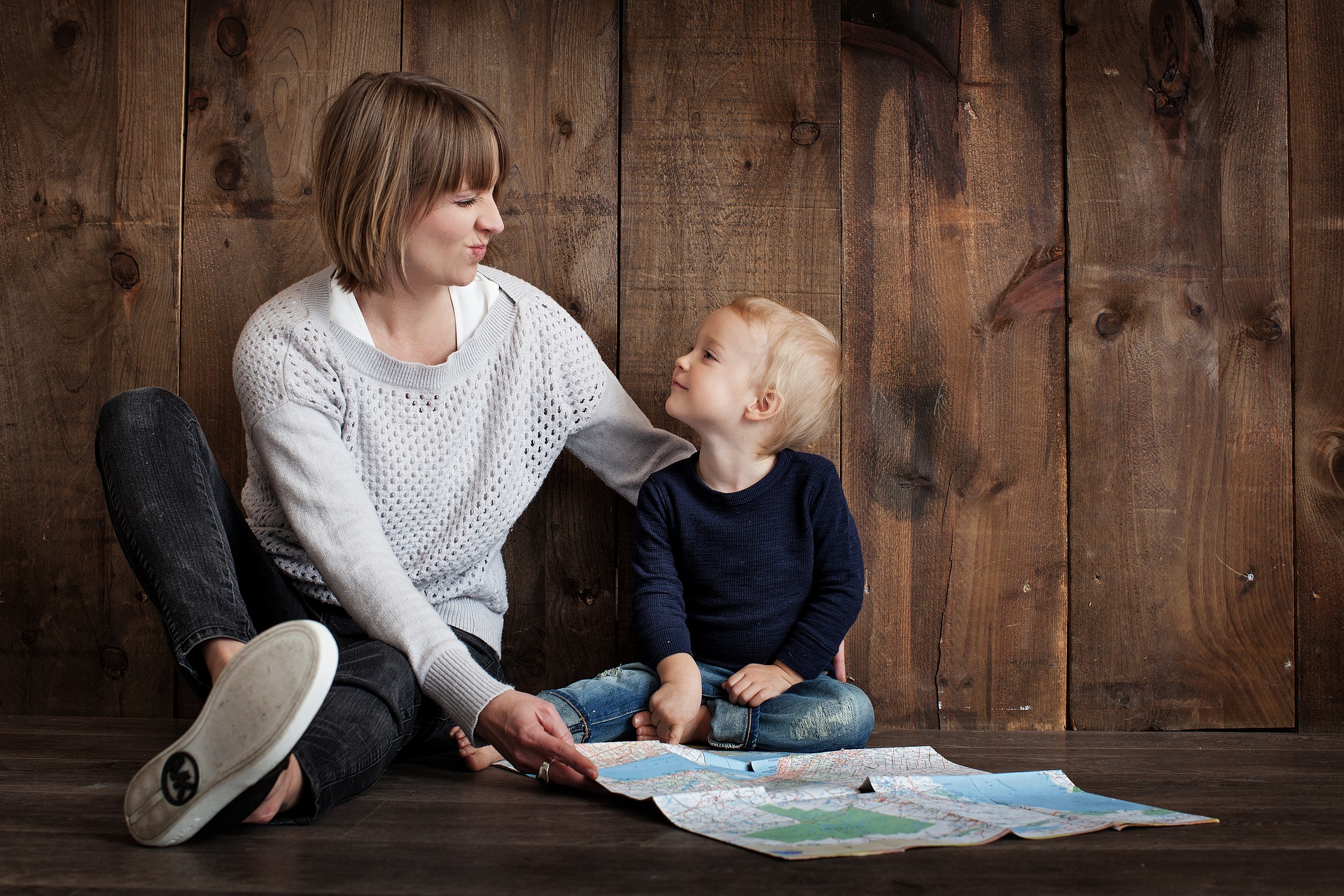
But we cannot confuse the difference between parent involvement in schools and parent engagement. One dictionary definition of involve is “to enfold or envelope,” whereas one of the meanings of engage is “to come together and interlock.” Thus, involvement implies doing to; in contrast, engagement implies doing with.
Parent involvement in schools includes attending events, volunteering in class or other activities, and serving on school councils and parent committees. It’s not that family involvement is bad. Almost all the research says that any kind of increased parent interest and support of students can help. But almost all the research also says that family engagement can produce even better results—for students, for families, for schools, and for their communities (Ferlazzo & Hammond, 2009) As a school we are striving for parent engagement-listening to what parents think, dream, and worry about.
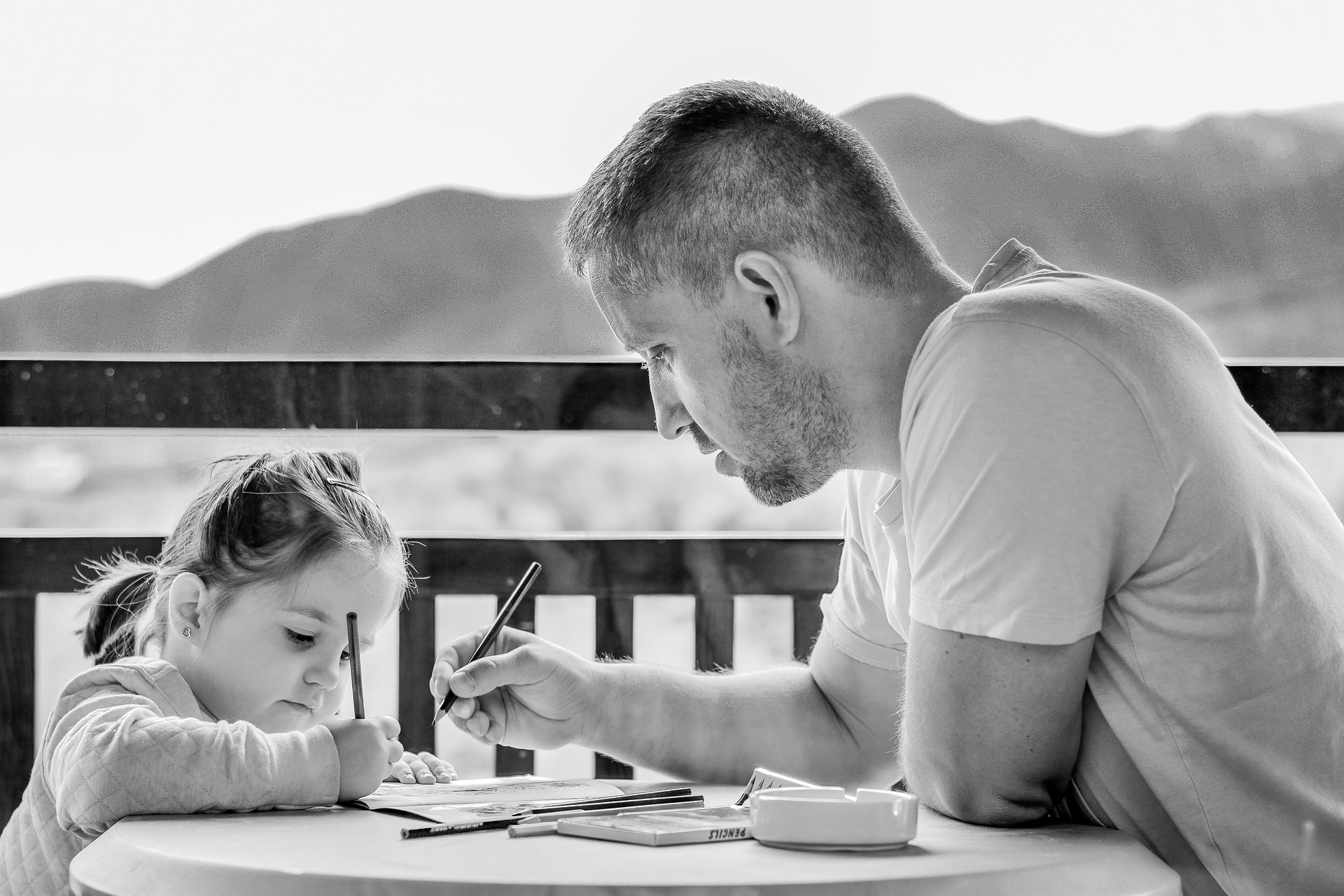
The ACT Government defines parent engagement in two parts—family-led learning and family school partnerships:
- Family-led learning focused on high aspirations for children, shared reading, a positive environment for homework, parent-child conversation, a cognitively stimulating home environment and support for social and emotional wellbeing; and
- family-school partnerships that encourage positive parent-teacher relationships, communication about children’s progress, and engagement in the school community, while equipping parents to effectively support and encourage their children’s learning and wellbeing (ACT Government, 2014).
As Term Three draws to a close, parents in the Junior School have the opportunity to participate in our Student Led Conference event on Thursday 9 September.
Student-Led Conferences form an important part of our Primary Years Programme (PYP) and the reporting of student learning across all learning areas. Student-Led Conferences involve the students having agency in their learning and taking responsibility for leading the conference with their parent/s, and in doing so, are responsible for sharing their learning and progress with their parent/s.
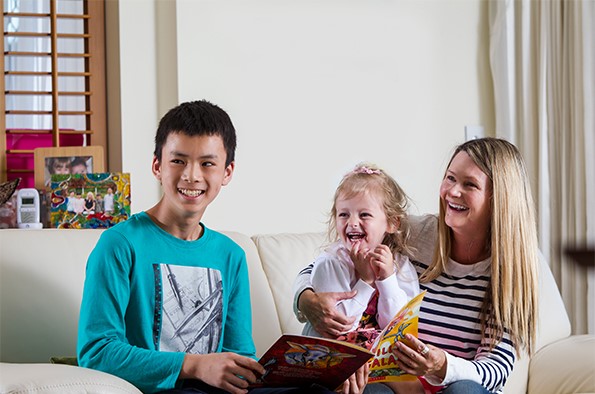
This year, we are extending on our process to allow for greater student agency, valuing student voice, choice and ownership. These conferences are a thoroughly rewarding experience (for students and parents) and we strongly encourage all families to take advantage of this opportunity.
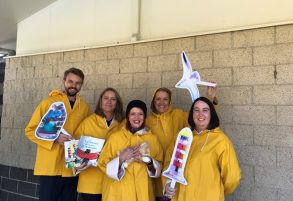
Junior School Book Week
Calamvale College’s annual book week was celebrated in style this week, with over 1000 students and staff from Prep to year 6 dressing up as …
Junior School Book Week
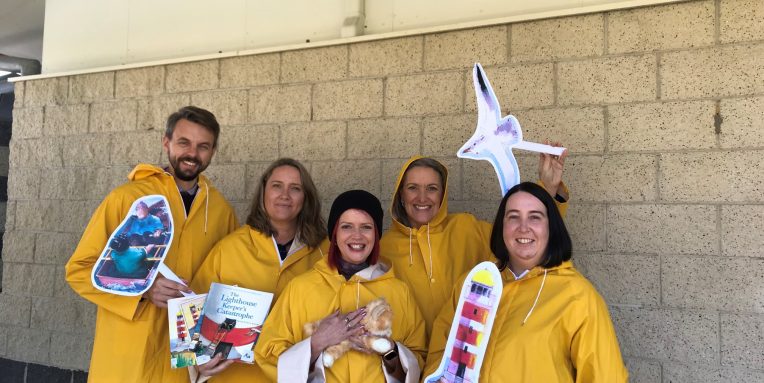
Calamvale College’s annual book week was celebrated in style this week, with over 1000 students and staff from Prep to year 6 dressing up as their favourite book character. This years theme, ‘Old Worlds, New Worlds and Other Worlds’ was reflected in the array of costumes on show. Unicorns, a class from Hogwarts’, soccer stars, a hungry caterpillar, coloured crayons and many more creative characters turned up to the entertaining parade. Much fun was had by staff and teachers as they paraded their costumes to the enthusiastic audience. Parents and caregivers enjoyed watching their children celebrate books at this exciting event.
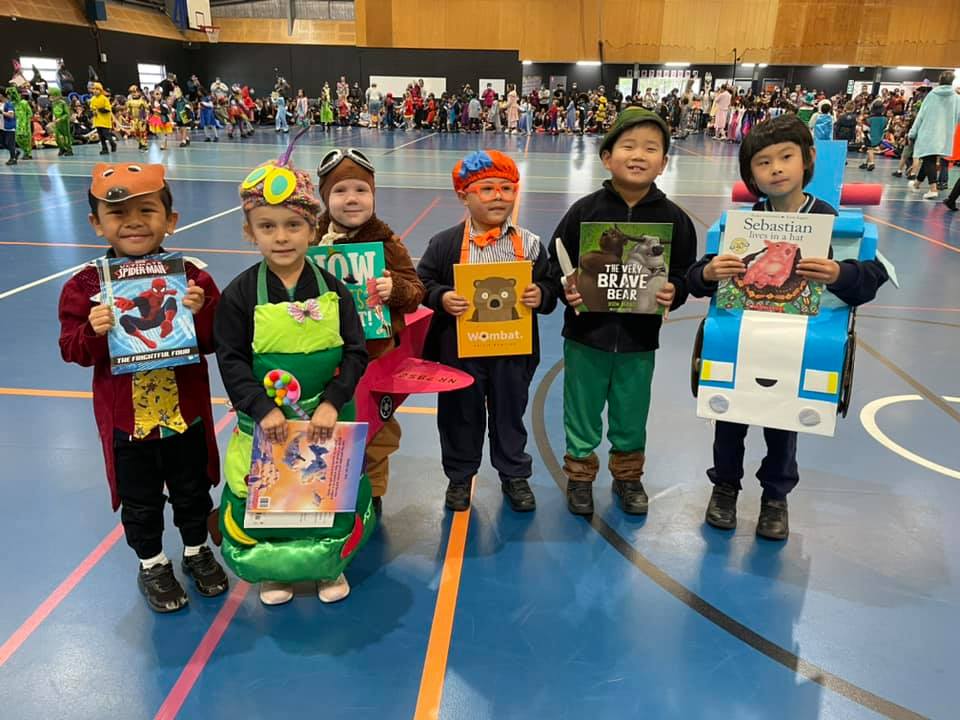
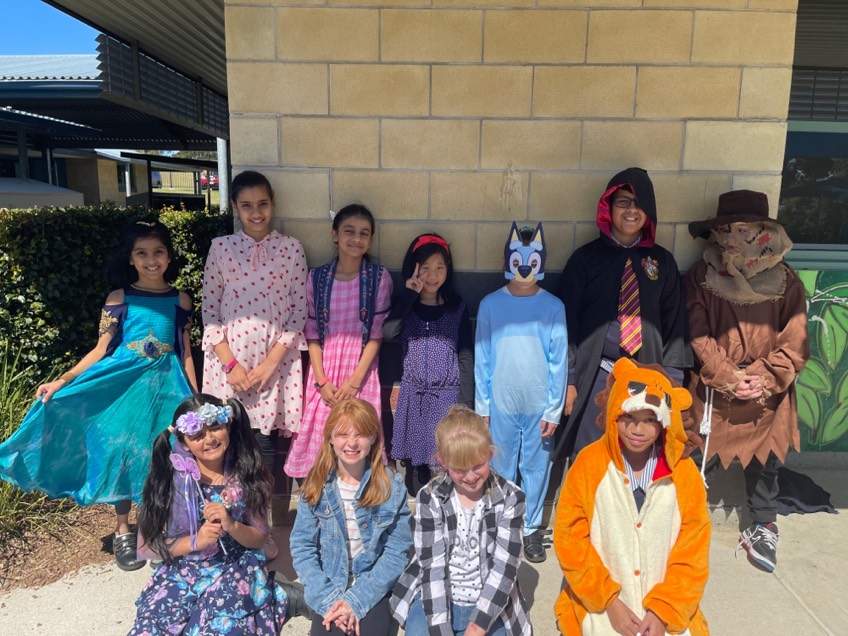
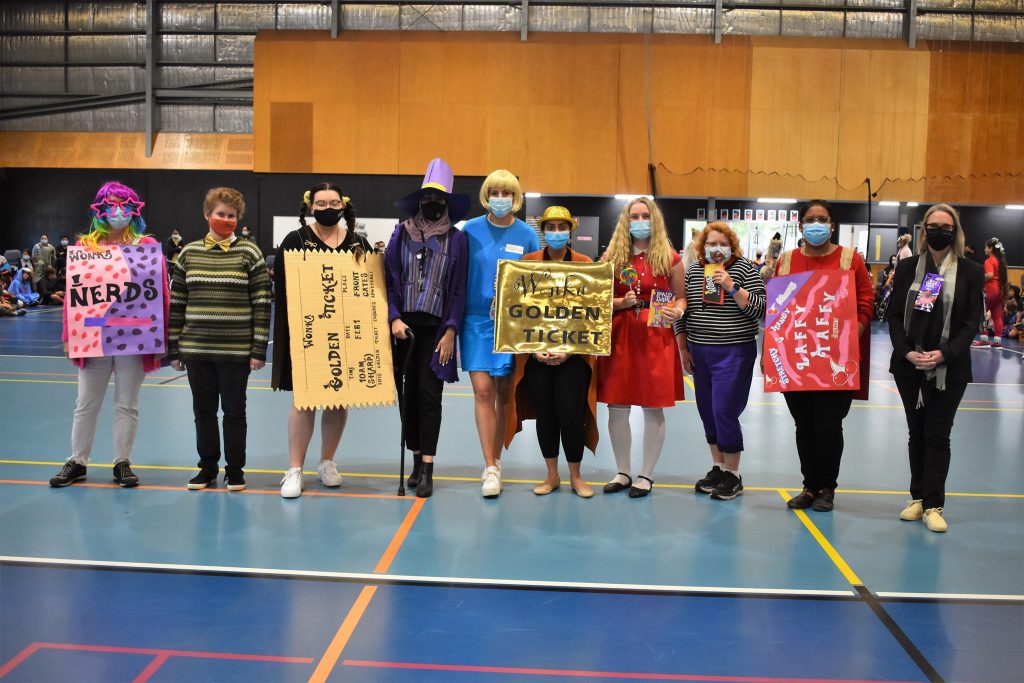
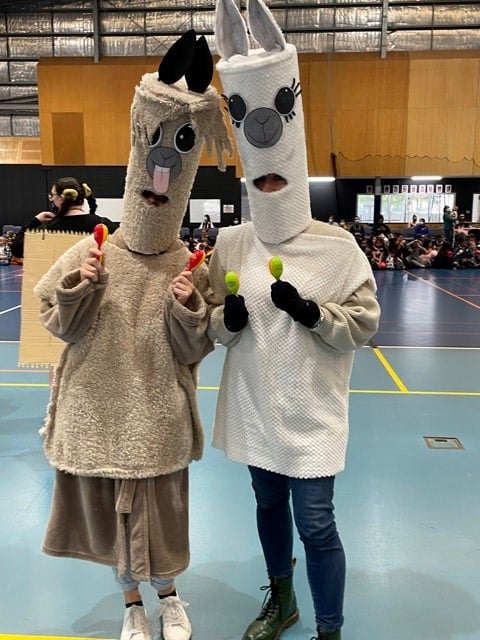
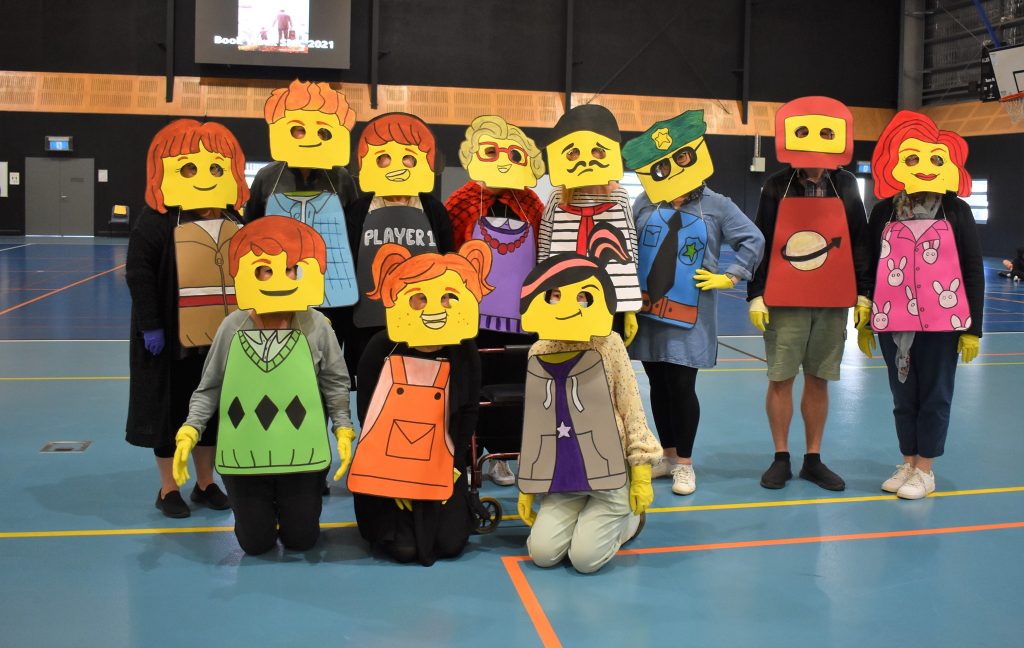

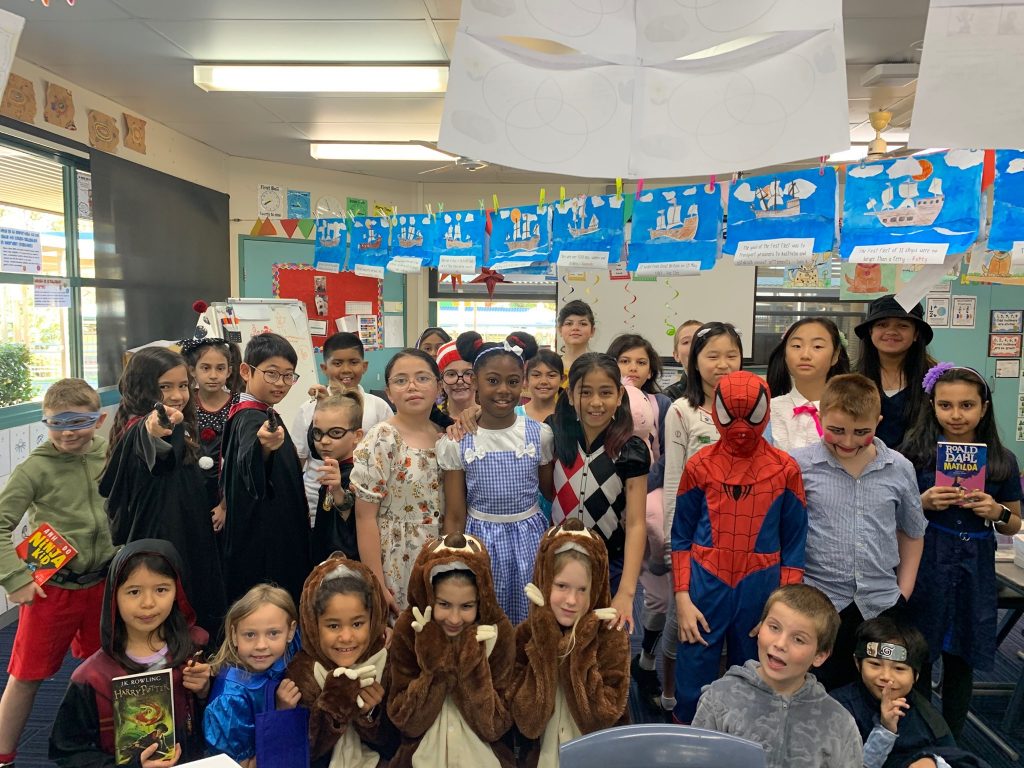
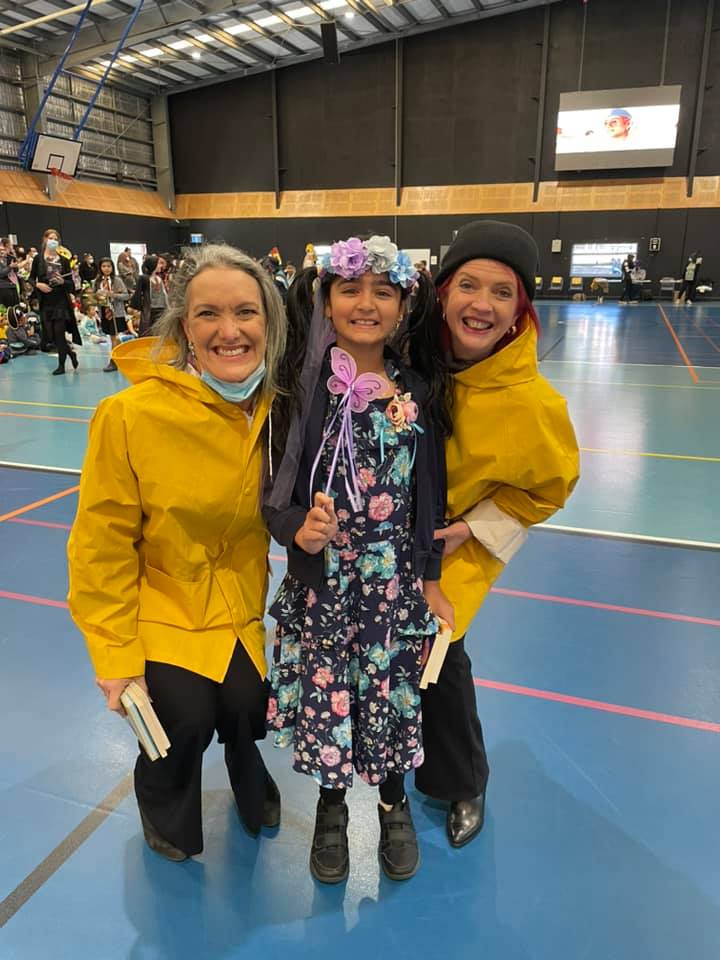
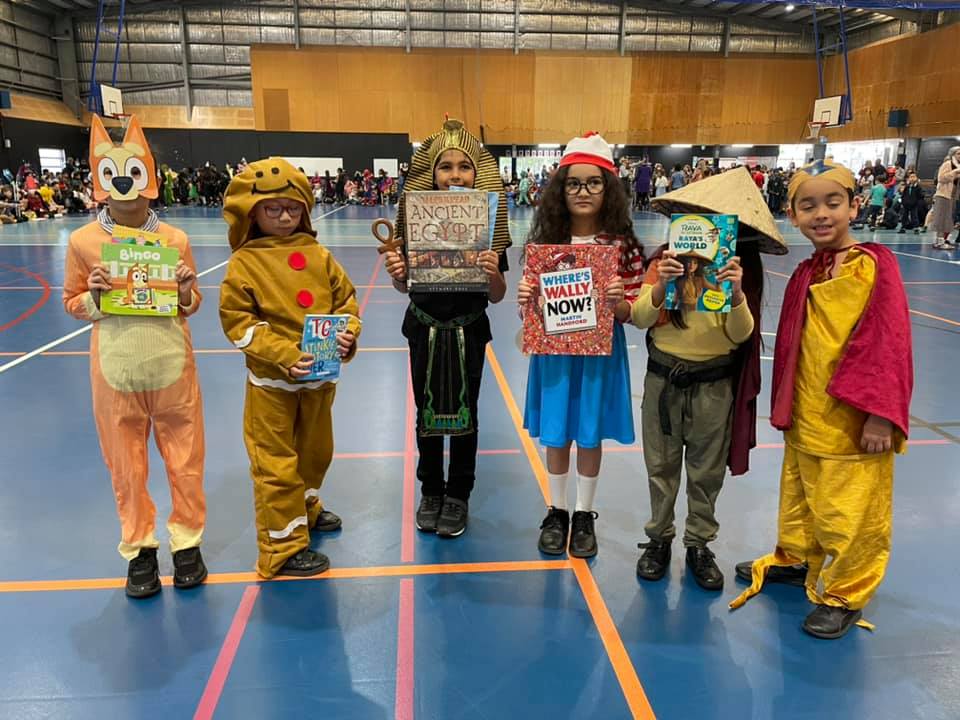
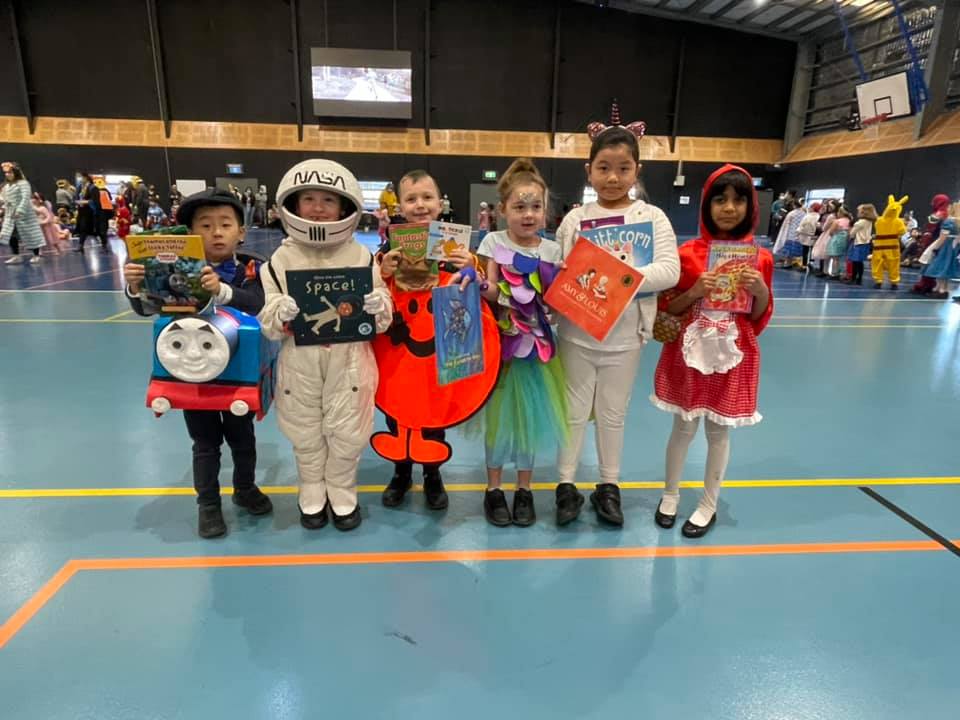
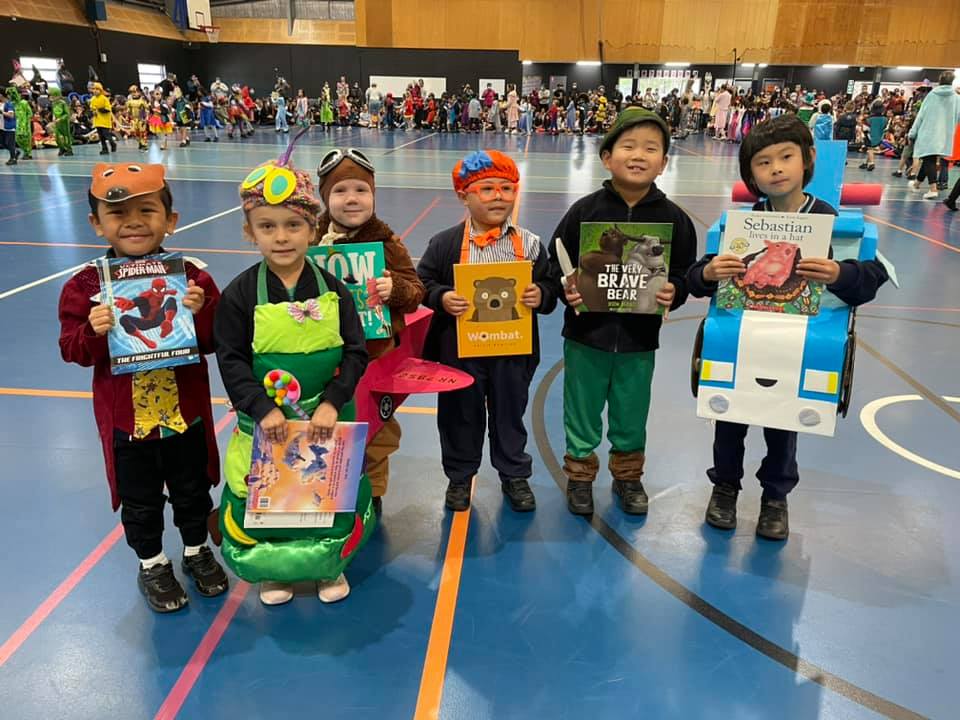
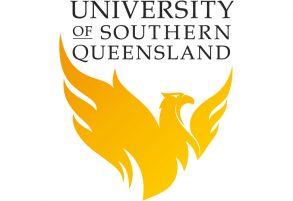
University of Southern Queensland Head start Program
Three Year 10 students have been successful in their applications to study a University Course this semester. The students have selected to further their knowledge …
University of Southern Queensland Head start Program
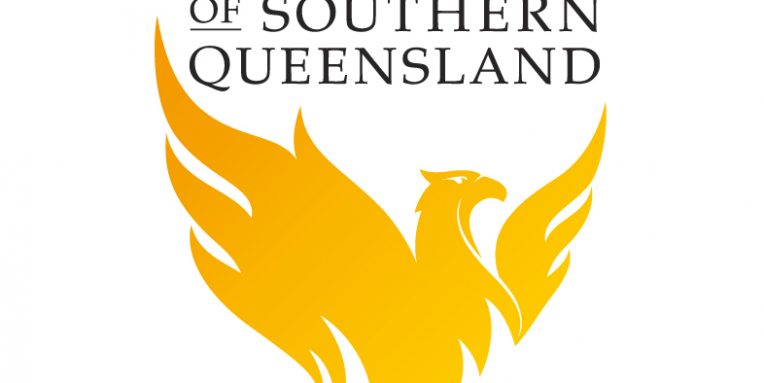
Three Year 10 students have been successful in their applications to study a University Course this semester. The students have selected to further their knowledge in the STEM field, studying Lab-based Sciences. This is a huge undertaking and accomplishment and we wish them well and congratulate them on their risk-taking approach to complement their learning.
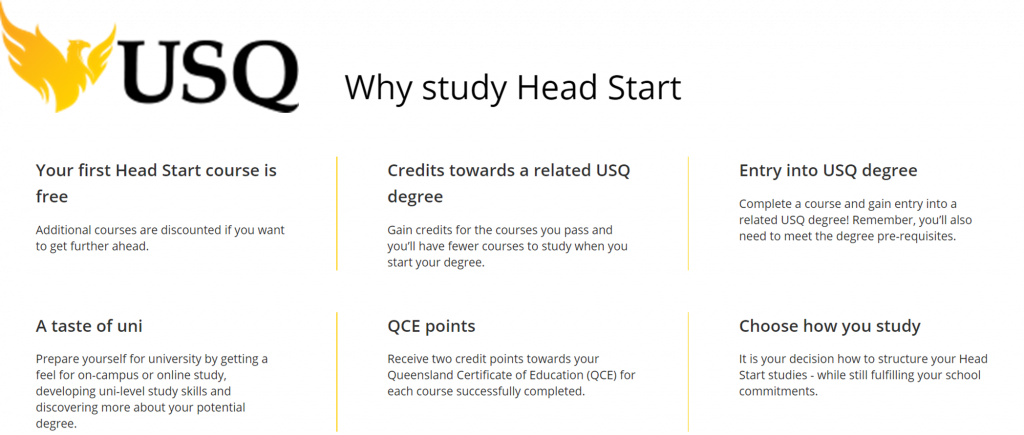
Certificate III Laboratory Skills
This week (National Science Week), 45 students in Year 10 and 12 completed their 7-month journey of this science-based course. These students, comprising of IB and ATAR bound students have been working steadily on their theory and then had the opportunity to complete their laboratory practicals under the guidance of our Trainers this week.
This qualification is particularly relevant in current times and reflects the role of workers who perform a range of laboratory techniques, including manual, semi-automated and fully automated, to collect and prepare samples in a laboratory. They conduct a wide range of basic, and limited range of specialist tests across a variety of industry sectors. Workers may be required to assist other personnel to solve technical problems and to adjust formulations and production mixes. They may also train them to collect samples and conduct basic tests reliably.
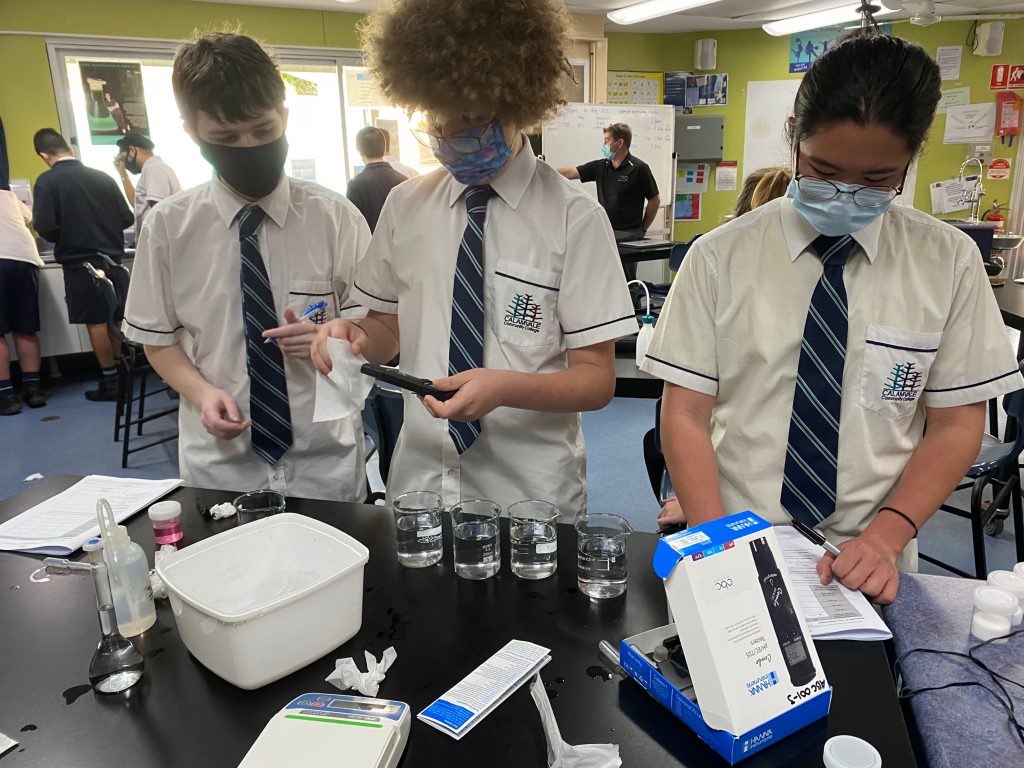
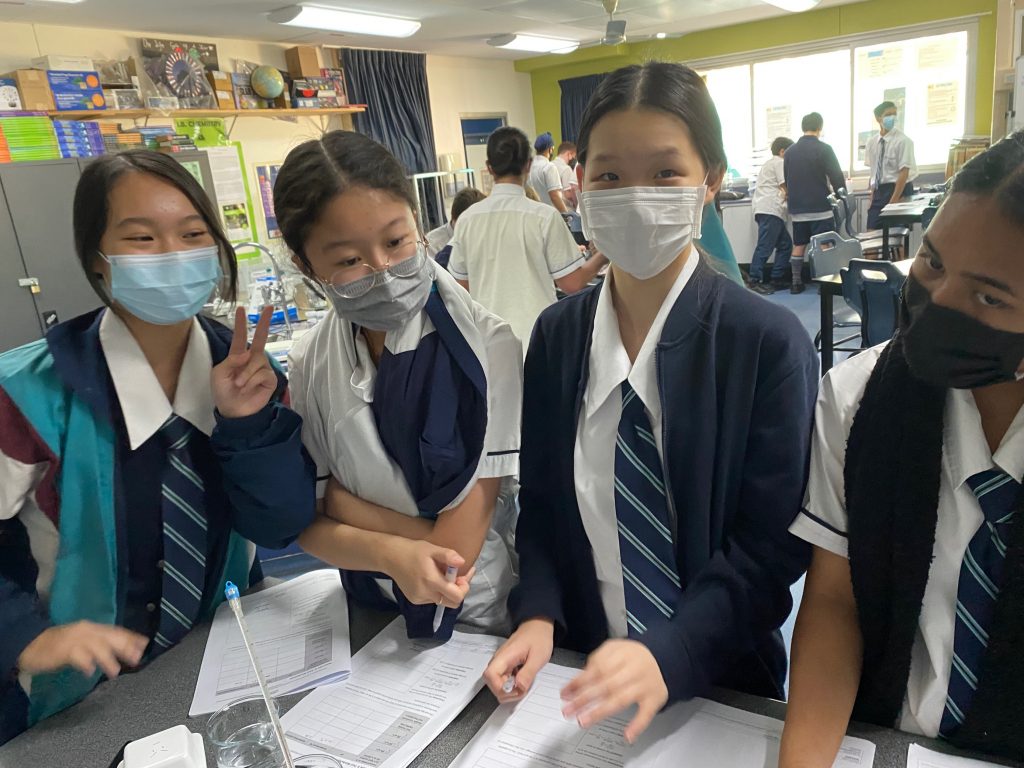
Upon their successful completion now, students have gained a nationally recognised qualification that opens up science-based employment opportunities, 6 QCE points, a guaranteed VET rank into Griffith University or University of Southern Queensland and newfound knowledge that will help them with their senior science investigations. All of which was fully VET in Schools funded. Certificates will be presented at the Term 4 Secondary School assembly – Congratulations team.
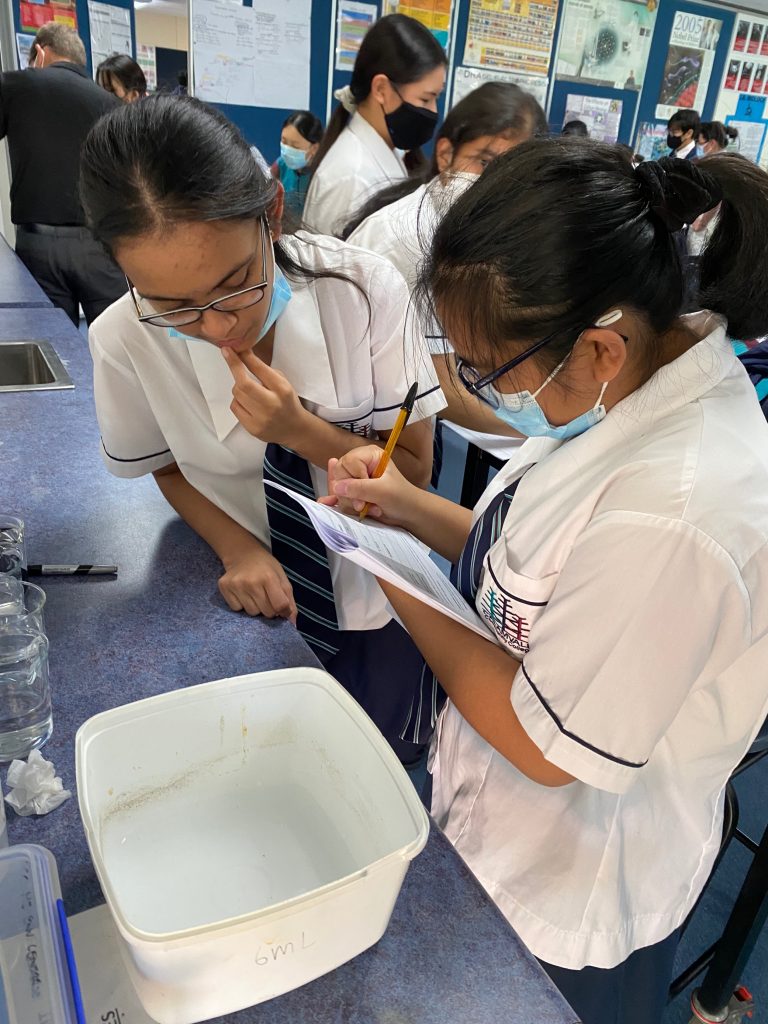
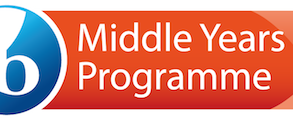
The IB Middle Years Programme at CCC
Calamvale Community College embarked on the next step in our IB journey this term, officially becoming a Candidate School. This means that our teachers and …
The IB Middle Years Programme at CCC

Calamvale Community College embarked on the next step in our IB journey this term, officially becoming a Candidate School. This means that our teachers and students are learning about the MYP and how its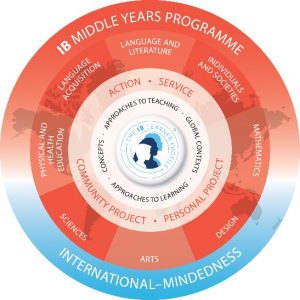 elements work together to create a world-class education for Junior Secondary students at our College.
elements work together to create a world-class education for Junior Secondary students at our College.
We are holding regular parent information sessions to keep all parents informed about the MYP and what it means for their child. The next parent information sessions will be held in Week 8. Please see the email invitation which has been sent out with further information.
What are the key elements of MYP?
In the MYP, students study 8 subject groups, with a minimum of 50 teaching hours per subject group each year. The Australian Curriculum is the basis of what is taught in each subject, with the MYP Framework serving as a lens through which this curriculum is viewed. These subject groups align with subjects already taught in Junior Secondary.
Global contexts provide shared starting points for inquiry into what it means to be internationally minded, framing a curriculum that promotes multilingualism, intercultural understanding and global engagement.
Key and related concepts are big ideas, which form the basis of teaching and learning in the MYP. They ensure breadth and depth in the curriculum and promote learning within and across traditional disciplines. These extend and deepen the ley and related concepts from the Primary Years Programme (PYP).
Approaches to teaching and learning, a unifying thread throughout all MYP subject groups, are skills which help students manage their own learning. They provide a foundation for success in further education and the world beyond the classroom. The approach to teaching used at from P-12 at Calamvale is inquiry, and the Approaches to learning are used across all three IB programmes at CCC. 
Action and service, essential components of the MYP, set out clear learning outcomes that grow from students’ participation in local and global communities. MYP projects are informed by respected models of service learning, and provides students with opportunities to work with members of their community in an authentic manner.
The community project is a culminating experience in which students collaboratively apply their approaches to learning skills to complete a project which identifies and addresses a need within their community.
By incorporating these elements, the IB Middle Years Programme will provide all students in Junior Secondary a strong foundation for their senior secondary pathways.
For more information about the IB Middle Years Programme, click here: https://www.ibo.org/globalassets/digital-toolkit/brochures/1503-myp-factsheet-for-parents.pdf
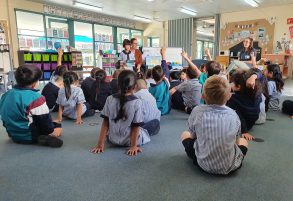
Positive Behaviour for Learning (PBL)
Calamvale Community College is committed to providing a positive learning environment for all of its students. Positive Behaviour for Learning (PBL) is a whole school evidenced-based …
Positive Behaviour for Learning (PBL)
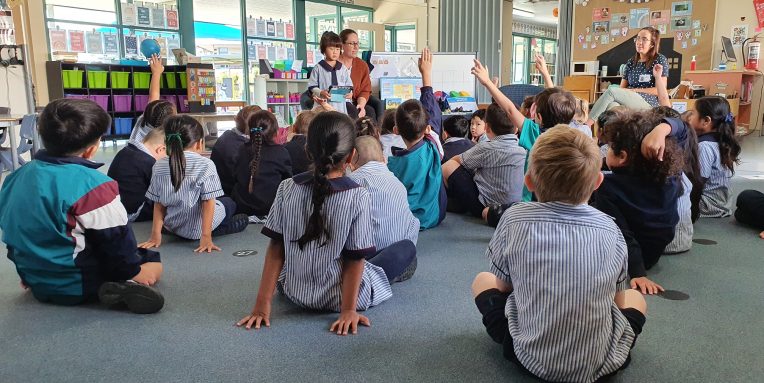
Calamvale Community College is committed to providing a positive learning environment for all of its students. Positive Behaviour for Learning (PBL) is a whole school evidenced-based approach to behaviour and includes explicit teaching of the expected behaviours needed for success at school. PBL brings together the whole-school community to contribute to developing a positive, safe and supportive learning culture. The framework assists schools to improve social, emotional, behavioural and academic outcomes for children and young people.
CCC commenced its PBL journey in 2021. The PBL committee has begun developing and implementing procedures, including a behaviour matrix (currently in draft form) and regular lessons, to teach students expected behaviours following the four College Values.
Our four College Values underpin the PBL expectations:
- RESPECT – Valuing ourselves, others and the diversity of our world.
- RESPONSIBILTY – Being accountable for own actions and contributing through service to the College and community.
- RESILIENCE – Having courage to overcome challenges by building positive connections with self and others.
- INITIATIVE – Identifying opportunities with a readiness to respond with innovation to achieve a positive outcome.
What is PBL?
When PBL is implemented well, teachers and students have more time to focus on relationships and classroom instruction. Students and staff benefit from:
- reduced inappropriate behaviour
- increased time focused on instruction
- improved social-emotional wellbeing
- positive and respectful relationships among students and staff
- support for teachers to teach, model and respond effectively to student need
- a predictable learning environment where staff and students know what is expected to deliver effective practices that can be sustained over time
PBL can be implemented in any school setting to support students from pre-school through to Year 12. The PBL framework supports schools to identify and successfully implement evidenced-based whole-school practices that enhance learning outcomes for children and young people.
How long does it take to implement PBL?
PBL is a process, not a program. The length of time it takes to get start implementing well varies by school. Schools typically take between 2 to 5 years to fully implement the essential features of the whole school approach. The implementation process is ongoing and constantly modified to meet the changing needs of the school and to address current concerns.
The goal of PBL
The College will take a proactive, preventative approach to ensure all students receive the appropriate level of support to help them to be successful at school. Student outcomes are monitored so identified students can receive additional support when needed, and a minority of students can access intensive support to enable them to engage successfully at school.
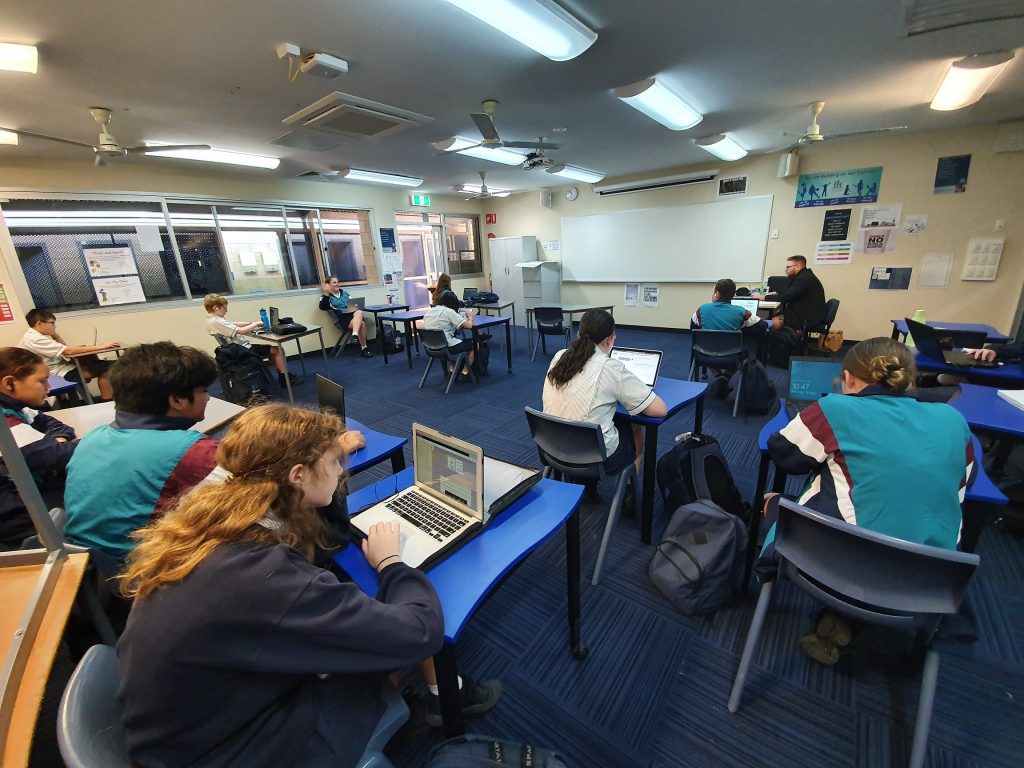
NSW Government. (2021). What is Positive Behaviour for Learning?. Retrieved from: https://education.nsw.gov.au/student-wellbeing/attendance-behaviour-and-engagement/positive-behaviour-for-learning/what-is-positive-behaviour-for-learning-pbl#:~:text=Positive%20Behaviour%20for%20Learning%20(PBL)%20brings%20together%20the%20whole%2D,for%20children%20and%20young%20people
Queensland Government. (2020). Positive Behaviour for Learning. Retrieved from: https://behaviour.education.qld.gov.au/supporting-student-behaviour/positive-behaviour-for-learning
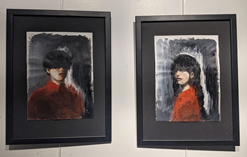
Student Work Selected for District Exhibition
Showcasing the rich imagination and creativity of high school students in the region, the Logan Art Gallery annually selects high quality artworks for their …
Student Work Selected for District Exhibition

Showcasing the rich imagination and creativity of high school students in the region, the Logan Art Gallery annually selects high quality artworks for their art exhibition: “Artwaves”. In the 29th year of this highly regarded exhibition, Calamvale Community College is excited to have a huge range of artworks selected, from bright eye-catching year 7 portraits, through to intricate and thought-provoking year 12 works.
The exhibition will be on display and open to the public in Logan Art Gallery, Wembley Road, Logan Central, from 10 September to 16 October.
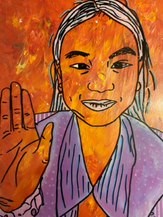
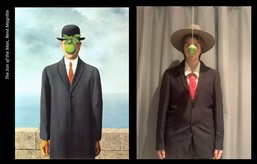

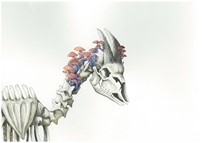
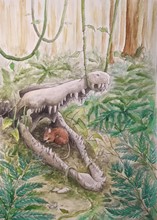
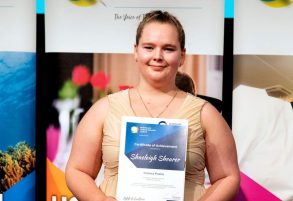
Queensland Tourism Industry Council’s Salute to Excellence 2021
Queensland Tourism Industry Council’s Salute to Excellence 2021 Calamvale entered the 24th Annual Salute to Excellence Awards this year. To date, QTIC has had more …
Queensland Tourism Industry Council’s Salute to Excellence 2021
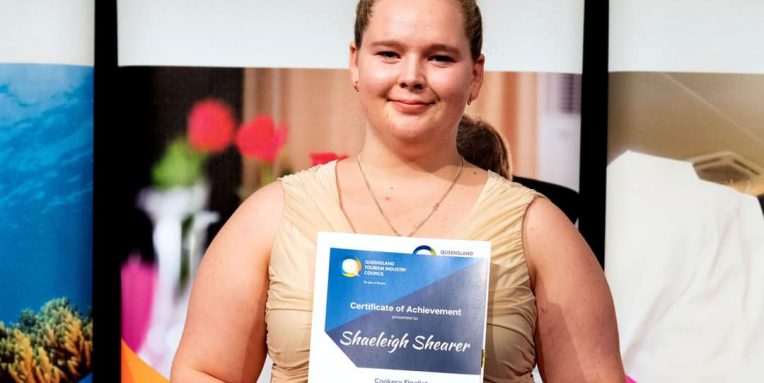
Queensland Tourism Industry Council’s Salute to Excellence 2021
Calamvale entered the 24th Annual Salute to Excellence Awards this year. To date, QTIC has had more than 128 schools across Queensland participate in the awards including 600 finalists, and 73 winners. The Awards recognises outstanding secondary students, employers, schools and registered training organisations for their participation in and contribution to the tourism, food and beverage and cookery qualifications through VETiS, and School Based Apprenticeships or Traineeships.
We are very proud of Shaeleigh Shearer, our Year 12 Kitchen Operations’ student that was acknowledged as a Finalist. She made it through two rounds of the competition, including a skills test day at TAFE QLD, Southbank Campus. Shaeleigh has spent many hours being trained by industry specialists in preparation for this event. Special thanks to Tom Bishop – College Chef & Kitchen Operations Trainer/Assessor, Adrian Blomfield, Algester Sports Club Head Chef & Vanessa Campbell from the Brisbane Convention & Exhibition Centre for mentoring and supporting Shaeleigh on this journey. 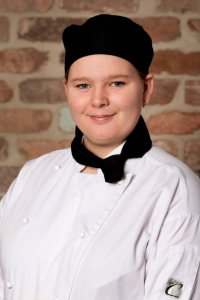
Last year QTIC added the category of Teacher/Trainer of the Year. We are excited to announce that our Hospitality Excellence Program Coordinator, Leah Cremen took out the category this year. This is an outstanding achievement as the peak industry body has acknowledged the contribution she makes both in the classroom, and in industry.
Shaeleigh is now heading off to complete work experience with The Star Culinary Institute at the Brisbane Treasury Casino. We can’t wait to see her take the next steps as she commences her transition into industry.
Congratulations to both Shaeleigh & Leah!
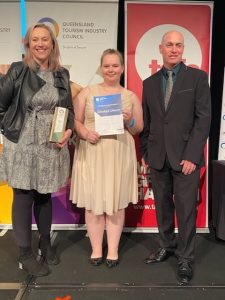
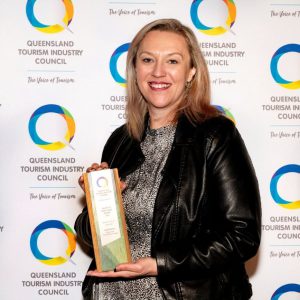
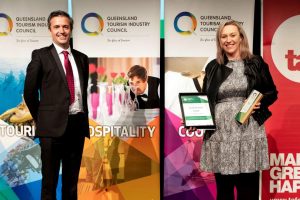
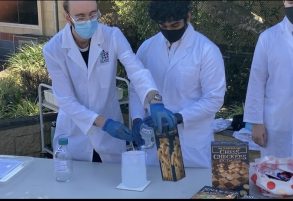
Science Week Amazingness
Established in 1997, National Science Week provides an opportunity to acknowledge the contributions of Australian scientists to the world of knowledge. It also aims to …
Science Week Amazingness
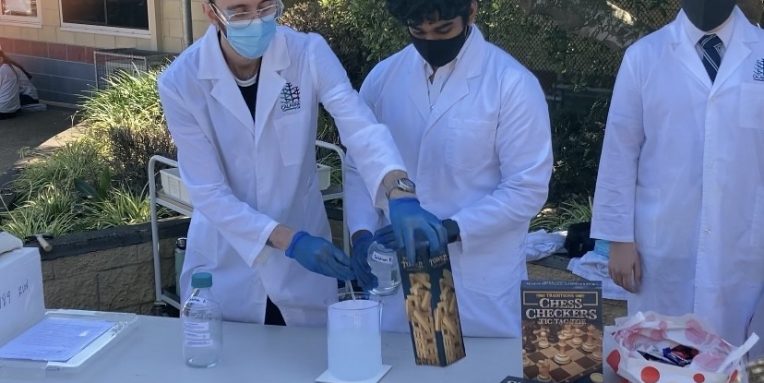
Established in 1997, National Science Week provides an opportunity to acknowledge the contributions of Australian scientists to the world of knowledge. It also aims to encourage an interest in science pursuits among the general public, and to encourage younger people to be fascinated by the world we live in today. What better way of portraying this by fun, and exciting Scientific experiments presented by the UQ science ambassadors to the secondary school college.
On the Friday of week 6, the UQ science ambassadors managed to showcase three experiments which included:
-Colour change through chemical dilution
-Dry Ice smoke bubble’s
-Elephant toothpaste
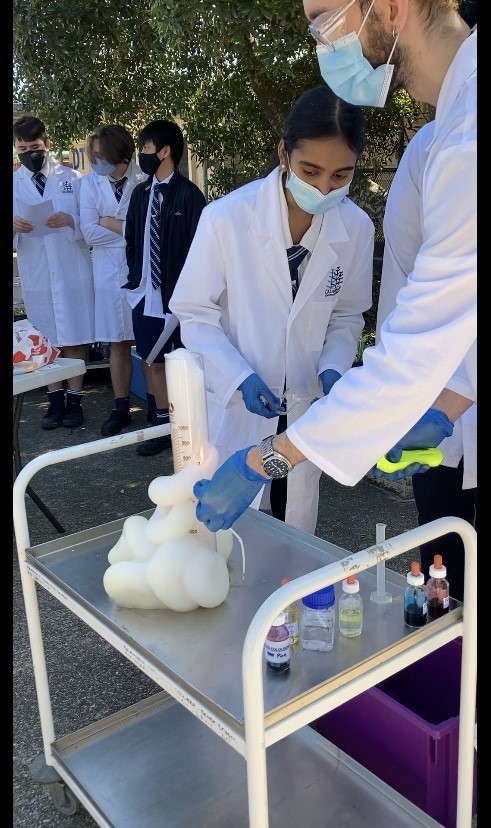
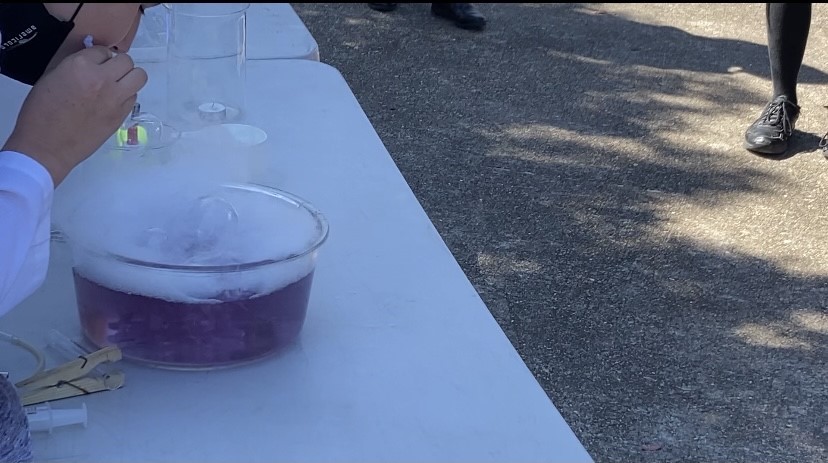
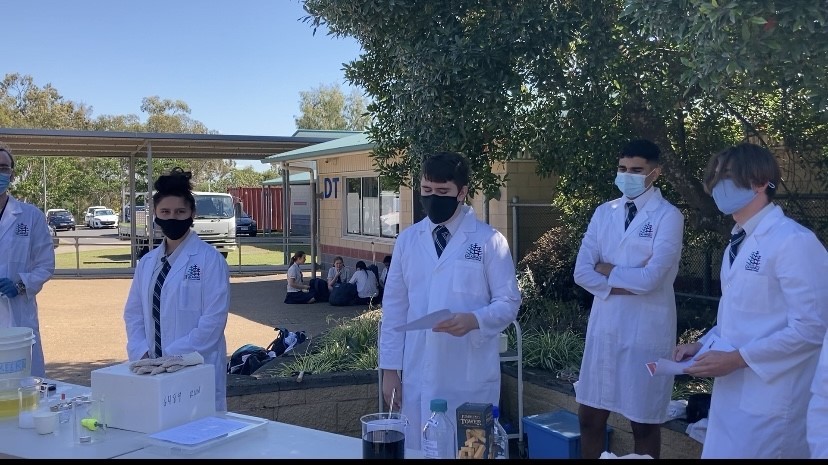
Furthermore, in the previous weeks, a Crystal growing competition was held to see who can form the best and most colourful crystals under the foundation knowledge discovered beforehand about saturated and unsaturated salt liquids. These crystal containers were judged by the on-lookers of the science week presentations’ – winners were awarded prizes for the admirable application skills.
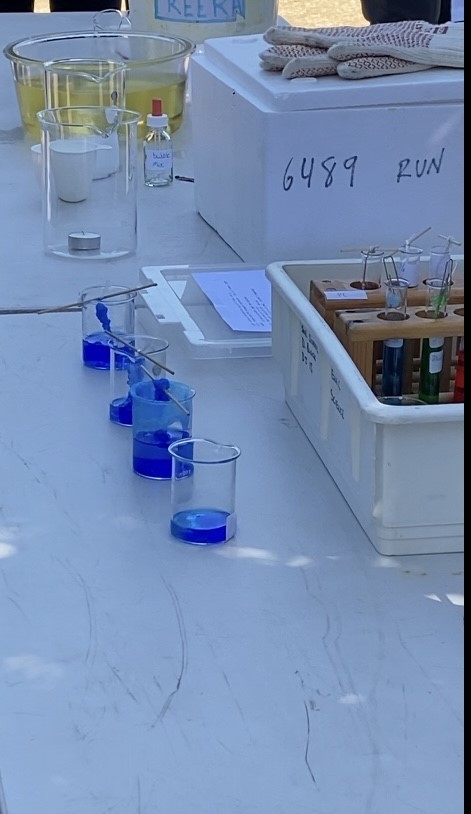
These were showcased to Secondary school students during their lunchbreak, without the effort put in by helping Science teachers, and the interest from the UQ science ambassadors to promote the wealth of knowledge to the school public, none of this would have been possible.
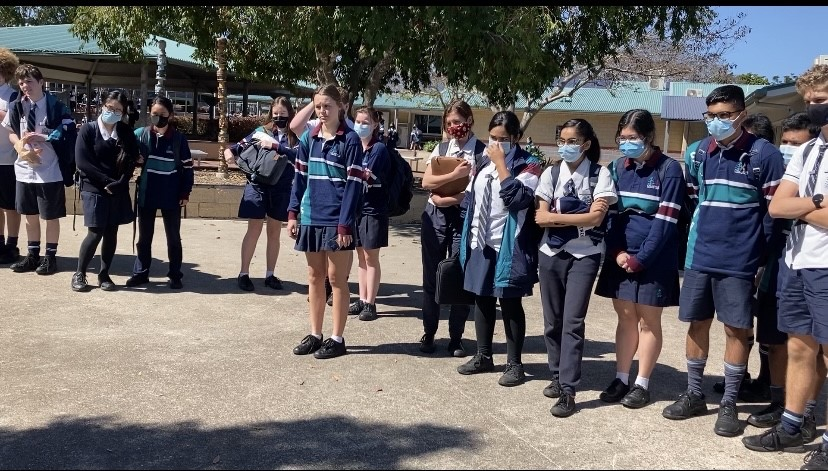
It is without doubt that the UQ ambassadors and guiding teachers are promoting Science to everyone’s everyday life, to not only show that the place and the equipment’s used in their ongoing life are founded upon laws and theories that govern our modern day understanding, but to show that Science will always be a force to be reckoned with.
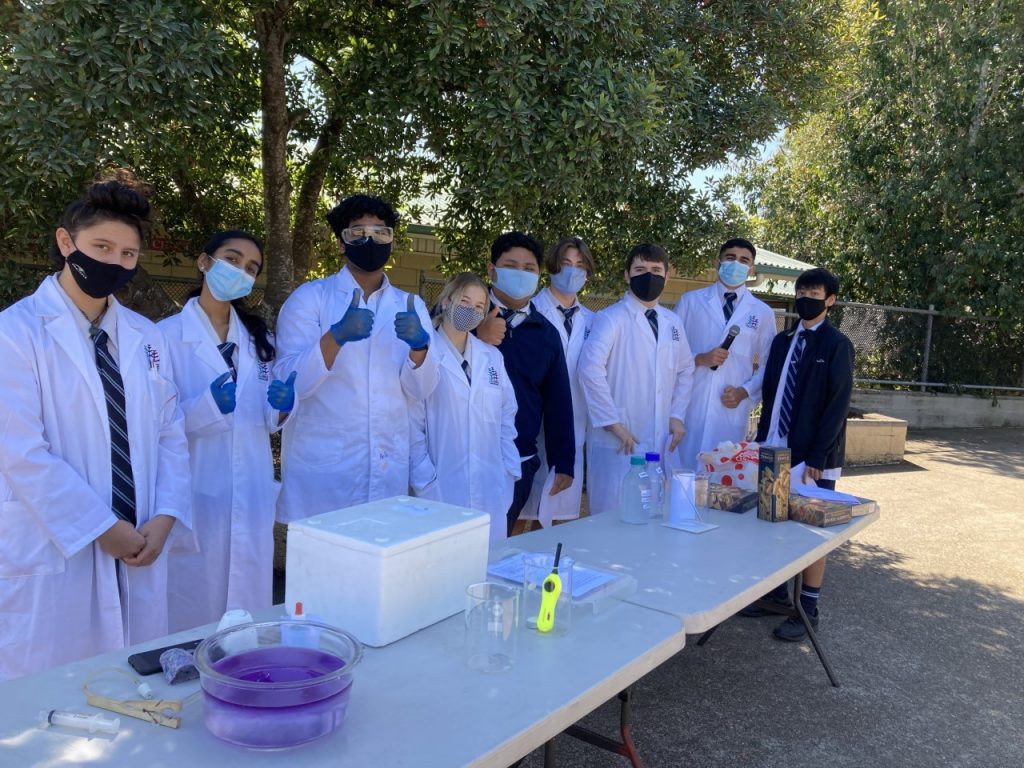
Kind Regards
Bassel Fayoumi
Calamvale Community College
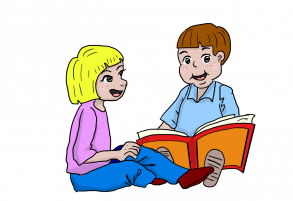
Reading Buddies – Developing Literacy, Partnerships and a Culture of Care.
The College’s Reading Buddies program seeks to enhance a greater sense of community across P-12 in the College while promoting and valuing literacy. For young …
Reading Buddies – Developing Literacy, Partnerships and a Culture of Care.
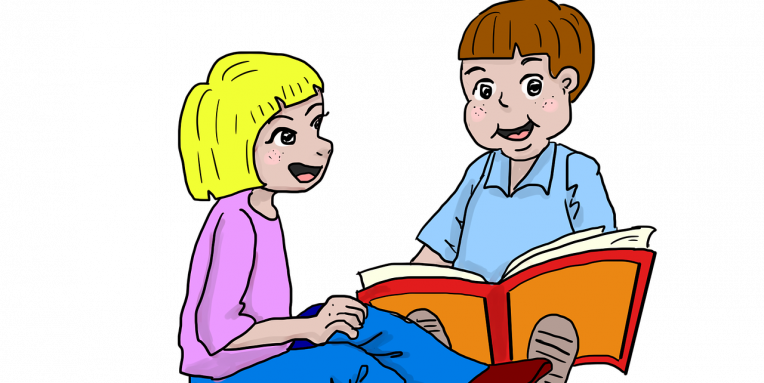
The College’s Reading Buddies program seeks to enhance a greater sense of community across P-12 in the College while promoting and valuing literacy. For young learners, it allows them to practise reading aloud in a small group or one on one situation with a mentor. At the same time our secondary students develop empathy and back in their iTime classrooms get to critically question the importance of literacy in society and the processes involved when working with small children. As well as listening to them read, students in Secondary engage in a ‘design thinking’ process as part of their iTime elective. This enables them to find out the interests of their reading buddies and create stories with important messages for them while reinforcing their understanding of the Sustainable Development Goals and Target 4.6 (Quality Education – for and through literacy).
– Pamela Curtin (Head of Global Competence)
‘The more that you read, the more things you will know. The more that you learn, the more places you’ll go.’ Dr Seuss
Whilst watching our ‘big buddies’ reading, listening to, and conversing with their ‘little buddies’, the benefits are already apparent. Our Lower Junior students look up to their older mentors and look forward to their time each week. Buddy reading provides much needed one-to-one support and encouragement. Students are supported by their mentors whilst expanding their vocabulary and reading familiar texts to improve and practise fluency. This program is helping to build a deeper sense of community and provide authentic mentorship opportunities, whilst also adding up the essential ‘reading mileage’ for our younger students.
It is a well-known fact that the more minutes a child reads each day directly impacts on their future success.
– Sarah Wilson, Head of English P-2
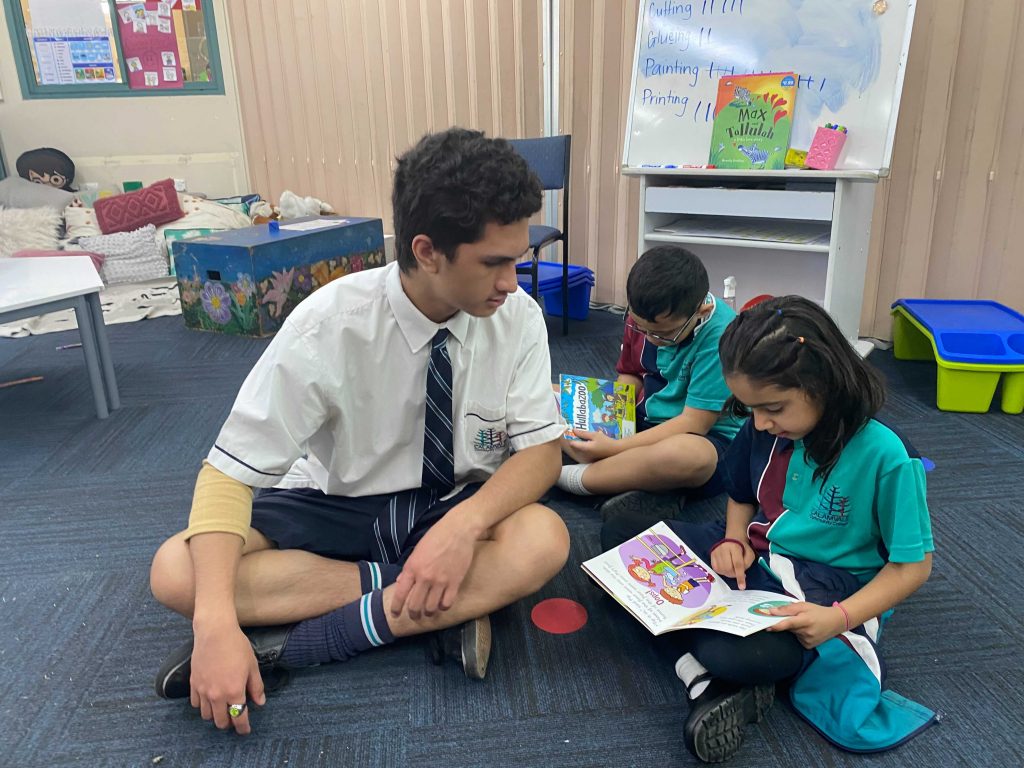
“My Buddy helps me if I make a mistake and he asks me questions about the story. It’s good to make friends with a big kid. He is very nice.”
– Hugo, Year 1
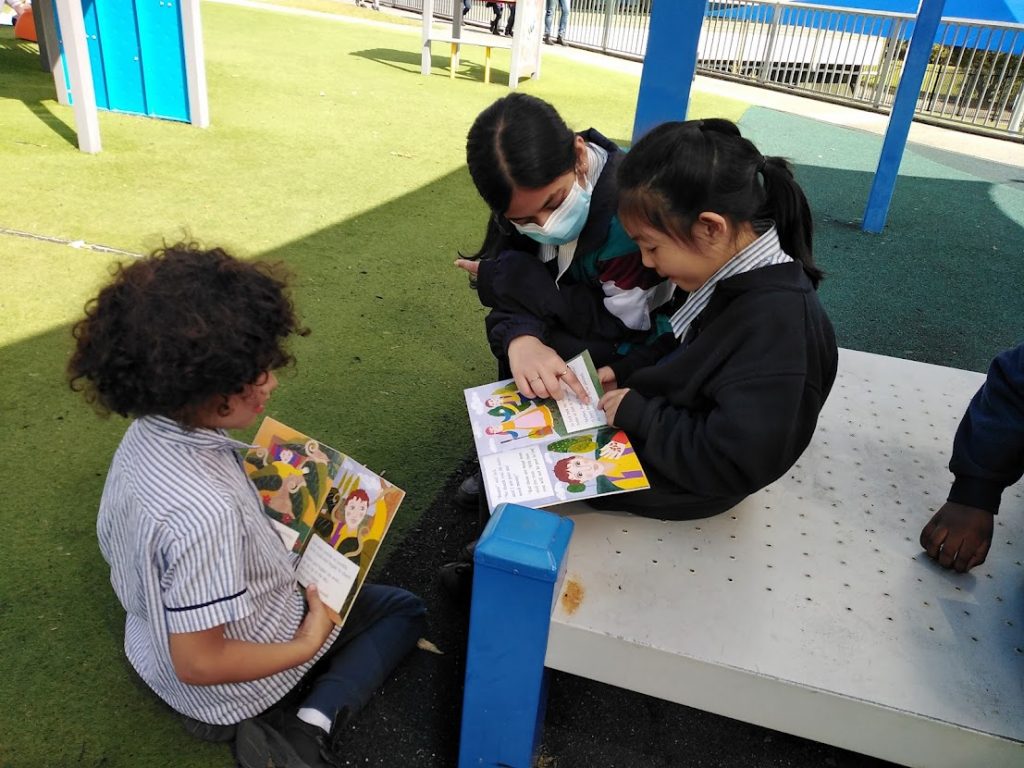
“I love reading to my buddy. She is a great listener and very nice to me. I can’t wait for every Wednesday so I can read with my buddy.”
– Elsa, Year 1
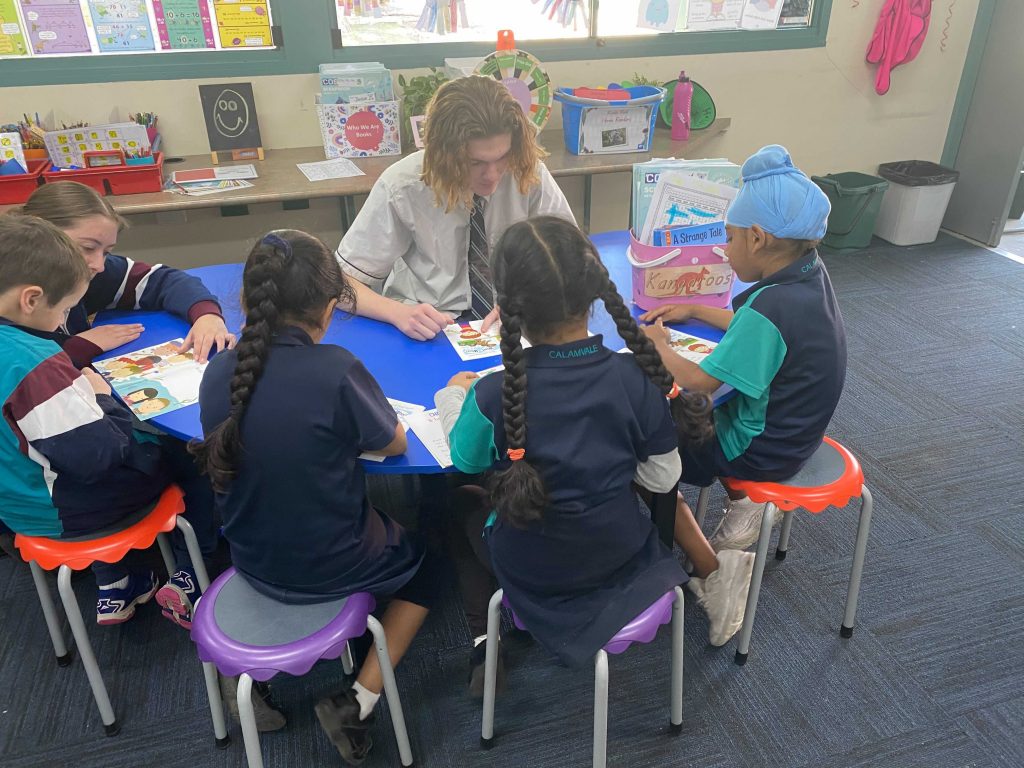
“Watching little kids run towards you with a book in their hands, and a huge smile on their face, showed me what amazing kids we have for the future. I re-joined this year with an open mind as I wanted to help and teach kids as much as I could, I wanted them to have well-rounded knowledge, but I also just wanted to see the smile on their faces again. This year I was given a buddy with learning difficulties. I didn’t know how much he knew; I didn’t understand his problems, but I wanted him to feel safe with me. The first time we read he was so excited, he opened the book and tried reading instantaneously. Over the course of the 8-page book, I saw change in him, he got frustrated and angry that he didn’t know the words, but he kept trying and he wouldn’t give up.”
– Tara, Year 11 student
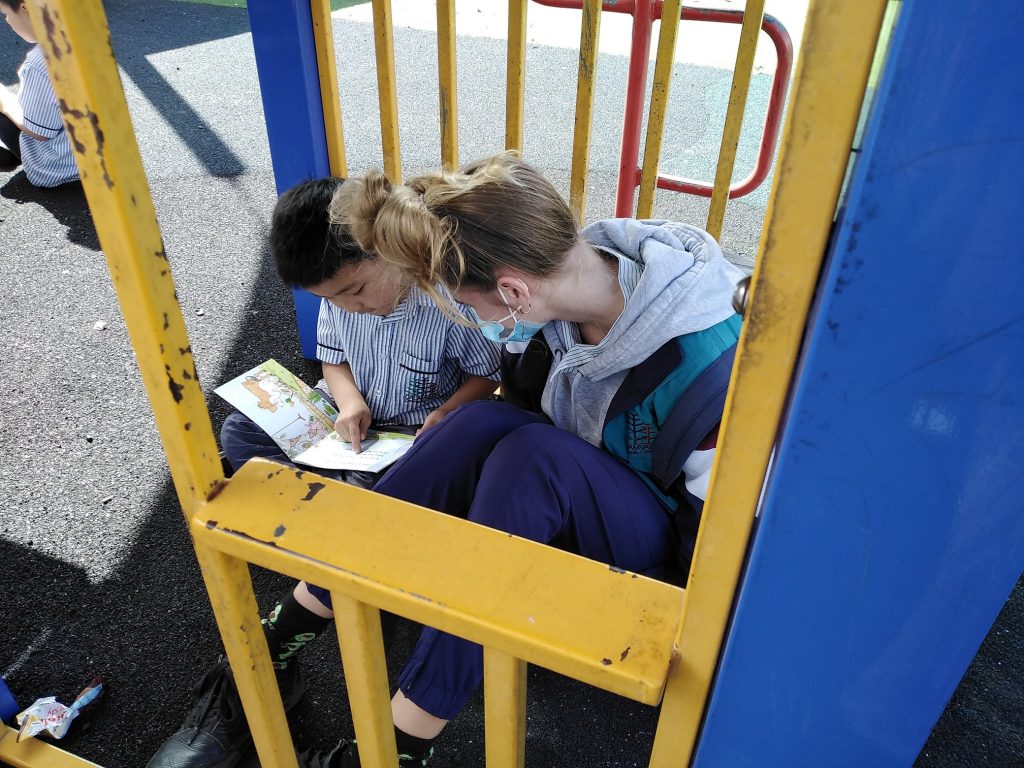
smart

Principal News
Almost the end of term and apologies for the delays in releasing this newsletter. Thank you very much for the support that you have given …
Principal News
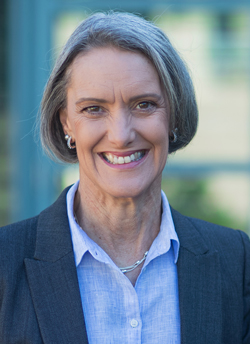
Almost the end of term and apologies for the delays in releasing this newsletter. Thank you very much  for the support that you have given the College over the most recent period of restrictions and mask wearing. Our students have successfully negotiated four weeks of exams, and two dramatic performances in the secondary school and we have been able to welcome parents into the College for Book Week and student-led conferencing in the Junior School.
for the support that you have given the College over the most recent period of restrictions and mask wearing. Our students have successfully negotiated four weeks of exams, and two dramatic performances in the secondary school and we have been able to welcome parents into the College for Book Week and student-led conferencing in the Junior School.
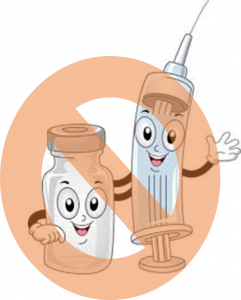 There are a number of issues which are currently concerning parents, which I would like to address here. Firstly, no student will receive a vaccination at Calamvale Community College without both parent knowledge and permission. As with any other vaccination, schools require permission for a student to receive a ‘jab’ and Covid-19 is no different. Those of you who have received a Covid vaccination would be aware of the list of health questions that must be answered prior to receiving the injection. Only parents have this knowledge and without it, no vaccination can safely proceed. We will, as always, communicate very clearly in multiple languages if there is any change, but we have no indication of such a decision at this stage.
There are a number of issues which are currently concerning parents, which I would like to address here. Firstly, no student will receive a vaccination at Calamvale Community College without both parent knowledge and permission. As with any other vaccination, schools require permission for a student to receive a ‘jab’ and Covid-19 is no different. Those of you who have received a Covid vaccination would be aware of the list of health questions that must be answered prior to receiving the injection. Only parents have this knowledge and without it, no vaccination can safely proceed. We will, as always, communicate very clearly in multiple languages if there is any change, but we have no indication of such a decision at this stage.
Vaping has become the new ‘fad’ amongst our young people and this one comes with some serious health concerns. Just as smoking is illegal, these nicotine-based vapours are illegal for anyone under 18 and have considerable restraints around general sales. We have suspended students as young as Grade 4 for bringing and sharing ‘vapes’. Carrying the responsibility for your students’ health whilst they are at school, we have reacted very strongly to ‘vapes’ being brought to school and then shared with others. I have attached the vaping awareness-raising information, that we have previously sent out, to this newsletter. Our penalties will remain strong and we encourage you to make sure that your children do not have access to these devices and hence do not bring them to school.
Next week is Multi-Cultural Week and we look forward to this wonderful celebration of who we are at Calamvale; it sadly fell victim to Covid last year. So, we are back, better than ever in 2021 with a wonderful theme and logo as the focus of the celebrations. The event is presented by our Year 12 International Baccalaureate students with support from Mr Davis and Mrs Ellis; many thanks to the whole team for the event. This year’s theme is The Beauty of Diversity with an Olympics flavour. We are looking forward to next Tuesday when our students will experience the culture and food of our community and hopefully the perspective of others’ in the world.
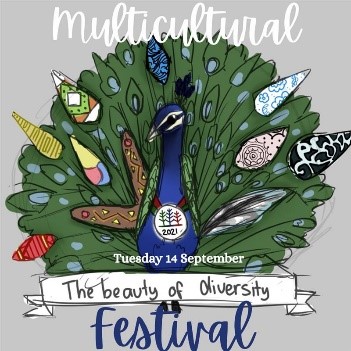
(Student logo artwork credit – Astrid Messerschmidt, Yr. 10)
Today was the Year 12 presentation of ‘Love Bites’ which is an officially sanctioned program that addresses issues around consent, domestic violence, responsibility and rights. We had 14 presenters from community agencies and the police cutting across cultures and experiences. Our students were both interested and respectful and we hope that there are conversations emerging from this at home.

We hope to send a pictorial newsletter home next week, that reflects some highlights of the term and focuses on Multicultural Festival.



